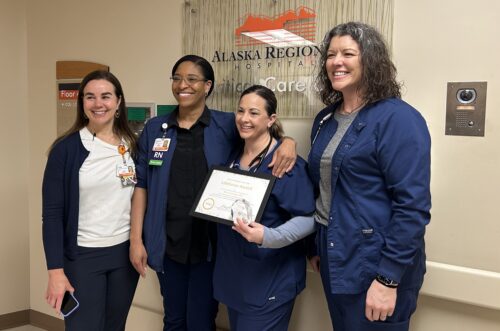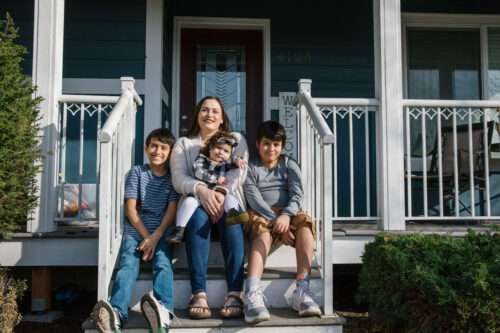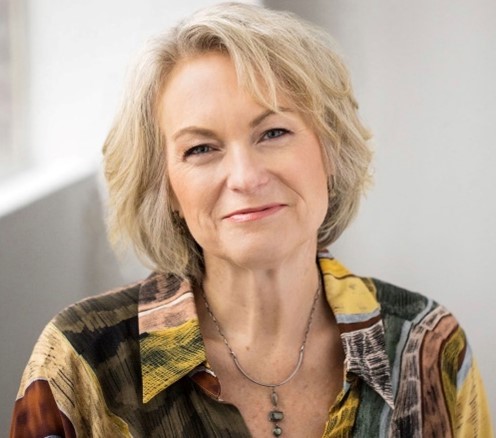The medical professionals we work with have a significant and direct influence on donation outcomes. Just as the geography and demographics of our vast service area differ from place to place, so does the donation experience. To celebrate the successes and highlight the unique obstacles of our donation partners, we interviewed leadership from around our region to ask why donation is important to them and what they enjoy most about living and working where they do. We are proud to feature Dr. Derel Finch, Chief Medical Officer, Cherry Hill campus, Swedish Health Services, as this month’s “Leader in Donation.”
 Swedish Health is comprised of five hospital campuses including Ballard, Cherry Hill, Edmonds, First Hill, Issaquah, and a newly expanded organ transplant and liver center at First Hill; ambulatory care centers in Redmond and Mill Creek; and Swedish Medical Group a network of more than 118 primary care and specialty locations throughout the Puget Sound. In 2017, Swedish Health had 10 organ donors, who were able to save 28 lives through transplantation.
Swedish Health is comprised of five hospital campuses including Ballard, Cherry Hill, Edmonds, First Hill, Issaquah, and a newly expanded organ transplant and liver center at First Hill; ambulatory care centers in Redmond and Mill Creek; and Swedish Medical Group a network of more than 118 primary care and specialty locations throughout the Puget Sound. In 2017, Swedish Health had 10 organ donors, who were able to save 28 lives through transplantation.
What does organ and tissue donation mean to you?
Well, it’s really an amazing thing. We have an opportunity to provide lifesaving treatment and opportunity for patients who are in such dire straits. It’s a juxtaposition and transition point from sadness, tragedy and loss around the donor, to life providing opportunities and joy for the next person. These things don’t present themselves very often.
Key point: Donation offers the health care team an opportunity to see hope where there is otherwise tragedy.
What makes you most proud of working at your hospital and why?
It would have to be the people and the mission! Seeing the excitement of teams working together and the compassion they show around caring for our patients and each other, that I think is magic. Seeing the shiny eyes, enthusiasm and the amazing teamwork makes me feel really proud. People’s hearts and minds are captured about doing better, helping our patients and being our best selves. It’s exciting to be a part of this.
Key Point: Donation is a part of good patient care. Health care workers who are passionate about helping patients often see donation as an extension of patient care and as part of ensuring top quality end of life care.
Why has your donation program been so successful/what drives you to make donation a priority in your hospital?
I would say it has a lot to do with LifeCenter and our relationship. It’s really the teamwork and the collaboration with LifeCenter that makes it successful. The donation process doesn’t just start when there is a specific candidate. It is there every day, all the time, as part of our care delivery. Celebrating donation events, following up after a case and figuring out how we can do things better, fine tuning the way we work together as a team, and talking to families. It’s an embedded program and that’s what makes it successful. These moments around donation don’t come around often but are so precious and it’s important that we do everything we can to make it the best it can be.
Key point: Having a good working relationship with the organ procurement organization (OPO) begins long before a donation case starts. When the hospital and OPO have regular communication and work collaboratively to create streamlined processes for communication, escalation, education and follow up, the result is better donation outcomes for the donor, family, recipient and hospital result.
What is unique about healthcare in your region?
There is probably more national similarity than regional uniqueness. This is an unprecedented time of change for healthcare. The pace of change, amount of disruption and unsustainability of it all is a commonality that everyone is seeing. I do think the people we get to deal with are great and everyone wants to do the right thing. The people in the Northwest are very active and balanced too. They are diverse and well intentioned.
What do you love about living in this community?
I love the outdoors. Life is busy, so I try to prioritize three things. Work, family and recreating. I have 13-year-old twins, a 9-year-old and of course my wonderful wife. When I’m not at work they get most of me. When I’m not with them I’m often out chasing wind with my kiteboard or biking or hiking in the beautiful Pacific Northwest.





